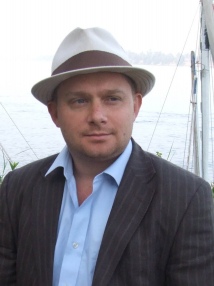Research areas
My main research areas are focused on the impacts of environmental stressors - across scales in time and space and over the spectrum of organisational levels - from molecules to ecosystems. This is primarily centred upon aquatic systems, and freshwaters in particular, but it also covers the terrestrial realm and agro-ecosystems too.
The five major stressors I have focused on to date include:
1. Acidification
2. Climate change
3. Land-use and habitat loss and fragmentation
4. Chemical pollutants, including biocides (e.g., antimicrobials and pesticides)
5. Invasive species
Increasingly, I am also interested in not just how these operate in isolation, but how they interact with one another and how these pressures are also then mediated through species interactions in the food web - which can lead to outcomes that cannot be predicted from trasdtional lab-based ecotoxicoilogy or biomonotoring approaches. Examples of such "ecological surprises" include the unexpected boosting of freshwater fish production under warming; the depression of invertebrate abundance as systems recover from acidification; algal blooms triggered by pesticide spills; plus newly emerging evidence that biocide impacts are strongly contingent on the thermal regime within which they operate. These "surprises" and non-additive effects create huge challenges for both basic and applied science, and also for policy - where such synergies and indirect effects are effectively ignored, even though they may be the dominant ways by which stressors are manifested in the real world. Much of my work is now focused on trying to bridge the "reality gap" between traditional approaches and what is actually occurring in natural systems, with a view to developing a more predictive framework for anticipating and managing multiple stressors in a rapidly changing world. Part of that also underpins my interest in developing a more evidence-based and informed approach to conservation, rewilding and restoration ecology - most of which is still done with little to no consideration of the ecosystem-level consequences of such interventions - which can often lead to undesirable outcomes.
Guest Lectures
Limnologia 2012 Plenary Lecture, Iberian Limnological Society, Portugal, 2012
Plant Litter Processing in Freshwaters - Plenary Lecture, PLPF, Cracow, Poland, 2011
Nordic Benthological Society - Plenary Lecture, Nordic Benthological Society, Aalborg, Denmark, 2011
Symposium for European Freshwater Sciences - Plenary Lecture, Girona, Spain, 2011
North American Benthological Society Annual Meeting - Invited Talk, NABS, Santa Fe, USA, 2010
Research Staff
Edwards,FE
Ings,N
Jackson,M
Layer,K
Lewis,H
Morris,O
O'Gorman,E
Perkins,DM
Pichler,D
Reiss,J
Thompson,M
Yvon-Durocher,G
Research Student Supervision
Adams,G, Developing individual-based approaches to assess size-structure in commercial fisheries
Clegg,T, Metabolic constraints on species interactions
Cotter,S, Impacts of watercress farming on chalk streams
Dossena,M, Predicting climate change impacts in complex ecosystems: a mesocosm approach
Forster,J, Metabolic constraints on zooplankton life-history
Gallo,B, Developing Molecular-Based Food Webs
Gray,C, Developing a novel network-based approach to biomonitoring
Hayes,RB, Impacts of exotic invasive crayfish in U.K. rivers
Hladyz,S
Huddart,J, River Restoration: Challenging Ecological Theory with Real-World Data
Jenkins,GB, Recovery from acidification and trout invasion of a complex stream food web
Johansson,L, Global warming and freshwater food webs
Lauridsen,RB, Consumer-resource stoichiometry in stream food webs
Layer,K, Food web responses to changing acidity in freshwaters
Lu,X, Applying Information Theory to Ecological Networks
Perkins,DM, Climate change impacts on biodiversity-ecosystem functioning relations
Pichler,DE, Climate change in Icelandic geothermal streams
Samson,A, Methane as a carbon source in stream food webs
Stewart,R, Protist assemblages under simulated global warming scenarios
Thompson,M, The decline of riverflies in chalk rivers
Warren,V, Environmental warming impacts on biogeochemical cycles in freshwater mesocosms
Yvon-Durocher,G, Climate change impacts on nutrient cycling and ecosystem metabolism in mesocosms
Zhao,L, Developing Network Approaches to Bioassessment in Chinese Freshwaters

